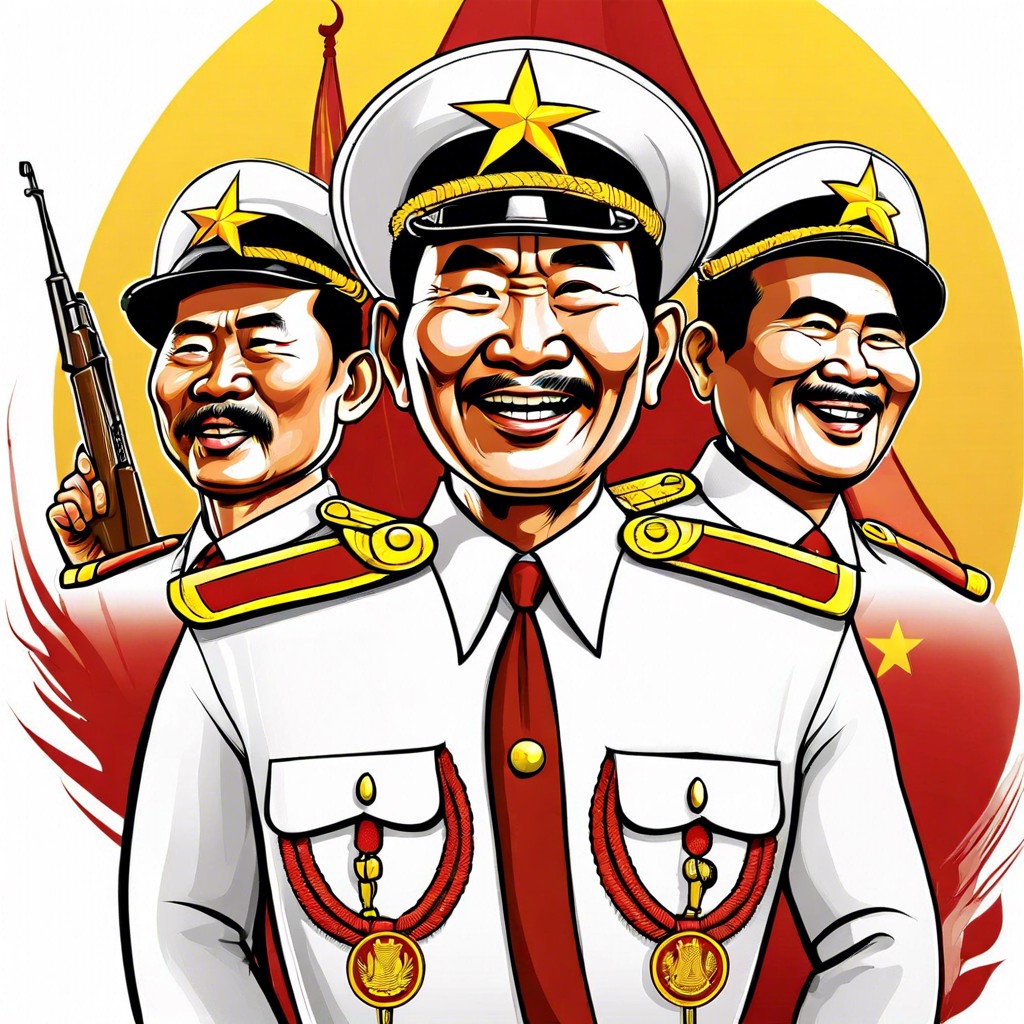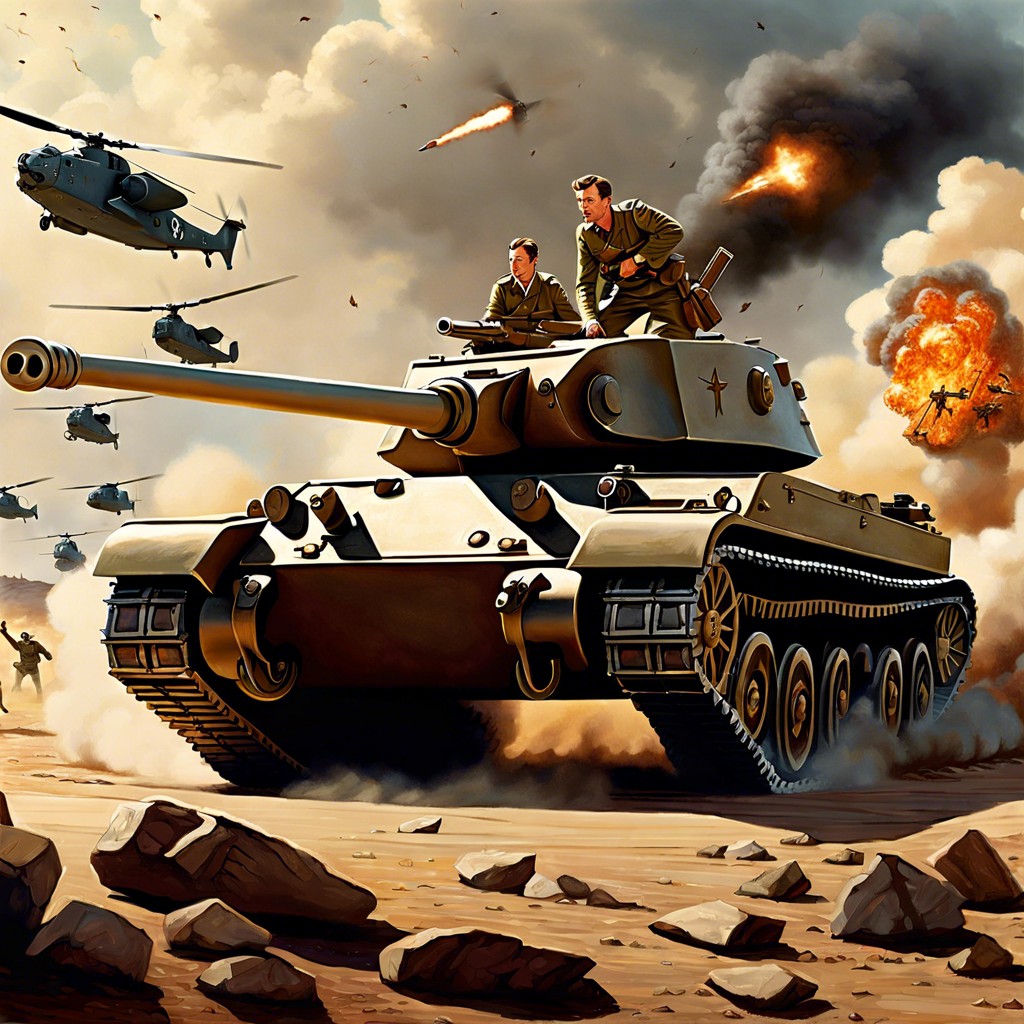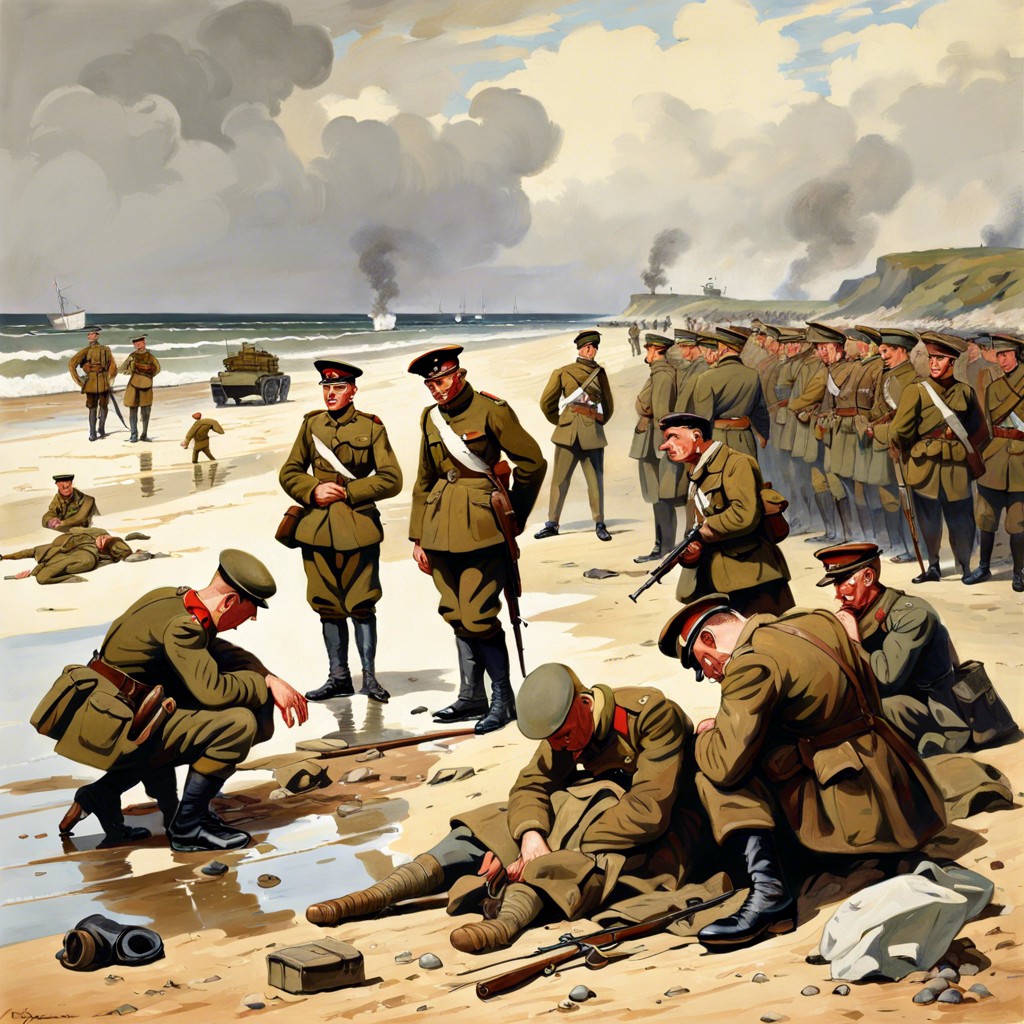Imagine a world where South Vietnam’s victory reshapes global politics and alters the course of the Cold War; that’s exactly what we’ll explore in this article.
Imagine a world where South Vietnam emerged victorious, flipping the Cold War chessboard on its head and sending ripple effects through history’s fabric. Curious about how this alternate timeline would affect politics, economics, and culture? You’re in the right place. From global strategies to regional transformations, let’s dive into this intriguing historical “what if” and unearth the seismic shifts that could have redefined our past and present. Spoiler alert: it’s a rollercoaster of epic proportions!
Key takeaways:
- South Vietnam as a democratic anti-communist stronghold.
- U.S. gains momentum in global Cold War strategies.
- Economic boom with increased foreign investment in South Vietnam.
- Cultural blend with Western influences in a thriving Saigon.
- Delicate post-win relationship dynamics with North Vietnam.
Historical Speculation: Political and Military Landscape

Imagine South Vietnam pulling off a historic win. First, we’d have to rethink the whole political chessboard of the region. Instead of unifying under a communist regime, the South would remain a stronghold of non-communist governance. Leadership? Think democratic ideals peppered with anti-communist sentiment, possibly making it a mini-version of post-WWII West Germany in Asia.
Militarily, U.S. troops might not have packed their bags so soon. South Vietnam would likely become an even bigger hub for American military bases, kind of like Japan with extra tropical flair. This foothold could theoretically put a bigger check on communist expansion in Southeast Asia.
This win could also mean a more prominent regional presence. Neighboring countries, unsure of which way the political winds were blowing, might be influenced by a successful, non-communist South Vietnam. It would likely affect not just Vietnam, but also the larger diplomatic ballet between the U.S., China, and the Soviet Union. Playing Risk on this new board would get very interesting, very fast.
Impact On U.S. and Global Cold War Strategy
Imagine a triumphant South Vietnam. The U.S. would bask in the glow of a Cold War win, like a kid who finally beat the hardest level on their favorite video game. Victory here might have emboldened the U.S. to adopt a more aggressive anti-communist policy, pushing back against Soviet influence wherever it reared its head.
Nations around the globe might observe a domino theory in reverse. Instead of falling to communism, countries could line up to embrace market economies and democracy, inspired by South Vietnam’s success.
The psychological boost for U.S. allies would be significant. Europe might sigh in relief, knowing Uncle Sam had the power to halt communism’s spread. Meanwhile, the Soviets would have some serious soul-searching to do, possibly rethinking their interference in places like Africa and Latin America.
China, with its neighbor now firmly anti-communist, would have to rethink its regional strategies too. The landscape of alliances and rivalries could shift as if the Cold War just entered a bizarre alternate timeline.
All this from one hypothetical win. Fascinating, right?
Economic Development and Regional Influence
Vietnam’s economy, had South Vietnam won, would likely have soared to impressive heights. Imagine the Phoenix rising—except, you know, with less ash and more market capitalism. Here’s the scoop:
First on the list, foreign investment. South Vietnam’s victory would have turned the region into a magnet for global businesses. Think factories, tech parks, and bumper-to-bumper cargo ships. Just imagine a mini-Silicon Valley with more pho.
Next, regional influence. A booming South Vietnam could have transformed Southeast Asia’s political dynamics. Picture a Southeast Asian tiger economy roaring alongside Singapore and Thailand. They’d have hosted grand summits with slightly less karaoke and significantly more impressive GDPs.
Lastly, tourism. South Vietnam’s exotic beaches and historic sites would have attracted hordes of eager visitors. Picture bustling, vibrant cities with a McDonald’s on every other corner. Well, almost. You’d get a Big Mac with a side of cultural history.
In essence, envision a region where economic growth is the order of the day, and the occasional water buffalo is just a charming footnote.
Social and Cultural Outcomes
Imagine a thriving Saigon bursting with neon lights, jazz clubs, and entrepreneurial spirit. Here are some concepts to chew on:
Cultural Mosaic: With South Vietnam’s victory, expect a greater influx of Western influences—movies, music, fashion. Think Woodstock meets Vietnam folk traditions.
Youth Movement: A more open society would empower the youth. Picture Vietnamese flower children challenging societal norms while blending local and global cultures.
Women’s Rights: Greater stability might have expedited women’s rights. Not groundbreaking overnight changes, but small, steady strides towards equality.
Education Evolution: An educational system blending Western techniques with local wisdom could have emerged. More liberal arts colleges, perhaps?
Diaspora Dynamics: A win might have lessened the exodus of intellectuals. Brain drain might turn into brain gain, as expatriates return home bringing diverse experiences.
Harmony Quest: The South may have sought cultural reconciliation with the North. Imagine festivals celebrating a shared heritage rather than clashing ideologies.
Social Media Frenzy: Fast-forward to a modern, victorious South Vietnam. Picture a buzzing social media scene, a melting pot of memes, activism, and vibrant local flavors.
There, quick, digestible, and offbeat.
Long-term Relationship With North Vietnam
Imagine the sibling rivalry of the century, but with tanks and AK-47s. That’s South and North Vietnam for you. If South Vietnam had won, the aftermath wouldn’t just be roses and reunions. The relationship between the two would be a delicate ballet of diplomacy and tension, with occasional tripping.
Firstly, there’d be reunification efforts. But this isn’t like getting the band back together; it’s more like merging two bands that really, really didn’t get along. Differences in political ideology would make this awkward duet particularly spicy—one side humming democracy, the other mumbling communism.
Economically, they’d need to bridge a Grand Canyon-sized gap. The South, seen as a bastion of capitalist development, would likely be trying to coax the North into market reforms. Picture a fancy business person convincing a rugged lumberjack to swap their axe for a briefcase.
There’s also the global chessboard to consider. The superpowers would still have their paws all over the situation, pulling strings like overly involved puppeteers. The US might push for further Western influence, while the Soviet Union (or its remnants), would whisper sweet communist nothings.
And let’s not forget the human element: Families divided by ideology might struggle with dinner conversation a bit more than the average household. “Pass the peas” might replace “freedom vs. socialism” as the hot topic.
The terrain would be rocky, but not impossible to navigate. After all, stranger things have happened—like pineapple on pizza becoming a thing.




